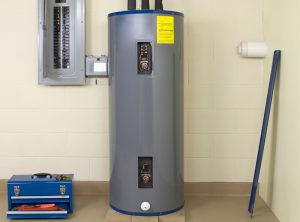 If you’ve never heard the term “hard water” before, we’d be surprised. If you told us you don’t know what hard water is or why it’s a problem, we’d be less surprised. The truth is, even though hard water is a very common thing, not a lot of people know what it actually is.
If you’ve never heard the term “hard water” before, we’d be surprised. If you told us you don’t know what hard water is or why it’s a problem, we’d be less surprised. The truth is, even though hard water is a very common thing, not a lot of people know what it actually is.
Hard water is water with a large presence of minerals in it—namely calcium, magnesium, and sometimes iron. These minerals are harmless to ingest, which is probably why not too many people worry about hard water. Unfortunately though, this complacency can lead to plumbing problems.
As harmless as hard water is for us, it’s actually harmful to your pipes. What happens is scaling—scaling is when deposits are left behind from hard water. In your drain openings and on your shower head, this shows up as limescale. But in your water heater, it settles right down in there, where you can’t reach it. And there’s your problem!
How Mineral Deposits Get Left Behind
Have you ever noticed a flaky white, green, or yellow buildup around your faucet handle or the drain? You likely clean it off as part of your bathroom cleaning routine and don’t think about it again. But this is happening as a result of scaling, and is actually a sign that you should call a plumber in Palatine, IL.
These minerals don’t drain away as easily as water does, and they can cling to a metal surface even as water rushes through. This leads to mineral deposits getting lodged in the pipes—including those leading into and out of your water heater—and at the bottom of the water heater tank.
Scaling Damage
Scaling negatively impacts your water heater in a number of ways. First off, buildup can develop in your pipes and effectively block water from moving through the water heater, if the buildup develops thick enough.
More common is the damage that occurs to the water heater itself. Minerals build up and settle at the bottom of the tank, and make it hard to heat water evenly. Decreased efficiency, over time, results in unbalanced pressure levels in the tank. Additionally, these minerals will begin rattling around at the bottom of the tank and can force it to corrode through.
Signs of Scaling
We told you the signs of scaling in your drain pipes—you’ll see a chalky substance that you can clean off. But you’ll never be able to see scaling inside your water heater. Instead, you’ll need to listen for it. If you hear rattling coming from your water heater tank—also described as popping or knocking—then it’s a sure sign that scaling is occurring.
Scaling can also affect the temperature of the water, particularly in tankless water heaters (remember, even tankless systems have a small tank-like component that water must pass through), as the deposits coat the heat exchanger and make it harder for water to pick up the heat.
One last sign to watch out for is a decrease in hot water pressure, if the scaling is clogging up the pipes that lead out of your water heater.
If you think you have scaling in your water heater, the best thing you can do is call in a trained and experienced plumbing pro!
For expert plumbing service, installations, or maintenance contact Reliance Plumbing Sewer & Drainage, Inc. Our knowledgeable plumbers serve the North Shore and Northwest Chicago suburbs. Rely on Reliance!
